Molecular Biology
Molecular biology is the study of the structure, function, and interactions of the molecules that make up living organisms. These molecules include DNA, RNA, proteins, and other macromolecules that are essential for life.
Key Concepts
- DNA Structure and Function: DNA is the genetic material that stores the instructions for building and maintaining an organism. It is a double-stranded helix composed of nucleotides, and it undergoes processes such as replication, transcription, and translation.
- RNA: RNA plays a crucial role in gene expression and protein synthesis. It includes messenger RNA (mRNA), transfer RNA (tRNA), and ribosomal RNA (rRNA).
- Protein Synthesis: The process of protein synthesis involves transcription of DNA to mRNA and translation of mRNA to protein. This process occurs in the cell's ribosomes and is essential for the production of functional proteins.
- Gene Regulation: Cells regulate gene expression to produce the right proteins at the right time. This involves processes such as transcriptional and post-transcriptional regulation.
- Genetic Engineering: Molecular biology techniques are used in genetic engineering to manipulate and modify DNA for various purposes, such as producing recombinant proteins or creating genetically modified organisms.
Study Guide
To effectively study molecular biology, consider the following steps:
- Understand the basic concepts of DNA, RNA, and protein structure.
- Review the processes of DNA replication, transcription, and translation.
- Explore the regulation of gene expression and the factors that influence it.
- Learn about the applications of molecular biology in biotechnology and medicine.
- Practice solving problems related to genetic engineering and gene expression.
Additionally, make use of visual aids, such as diagrams and animations, to better understand molecular processes at the cellular level. Keep up with the latest developments in molecular biology through scientific journals and online resources.
By mastering the fundamental principles and staying updated on advancements in the field, you can develop a strong foundation in molecular biology.
.◂Science Worksheets and Study Guides Eighth Grade. Organic compounds
Study Guide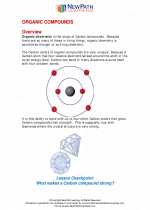 Organic compounds
Organic compounds  Worksheet/Answer key
Worksheet/Answer key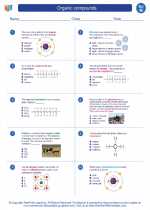 Organic compounds
Organic compounds  Worksheet/Answer key
Worksheet/Answer key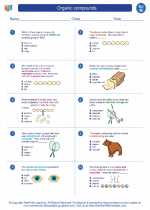 Organic compounds
Organic compounds  Worksheet/Answer key
Worksheet/Answer key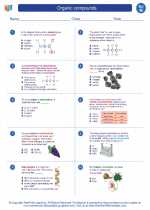 Organic compounds
Organic compounds  Vocabulary/Answer key
Vocabulary/Answer key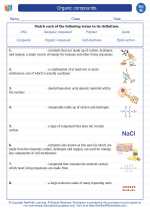 Organic compounds
Organic compounds  Vocabulary/Answer key
Vocabulary/Answer key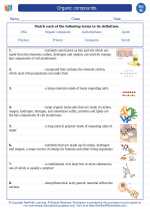 Organic compounds
Organic compounds 

 Worksheet/Answer key
Worksheet/Answer key
 Worksheet/Answer key
Worksheet/Answer key
 Worksheet/Answer key
Worksheet/Answer key
 Vocabulary/Answer key
Vocabulary/Answer key
 Vocabulary/Answer key
Vocabulary/Answer key

The resources above cover the following skills:
Physics: Students will use scientific skills and processes to explain the interactions of matter and energy and the energy transformations that occur.
Thermodynamics: Identify and explain that heat energy is a product of the conversion of one form of energy to another.
Identify and describe the various forms of energy that are transformed in order for systems (living and non-living) to operate: Chemical - Flashlight-Light; Mechanical - Pulleys-Motion; Solar/Radiant - Solar calculator; Chemical - Plant cells.